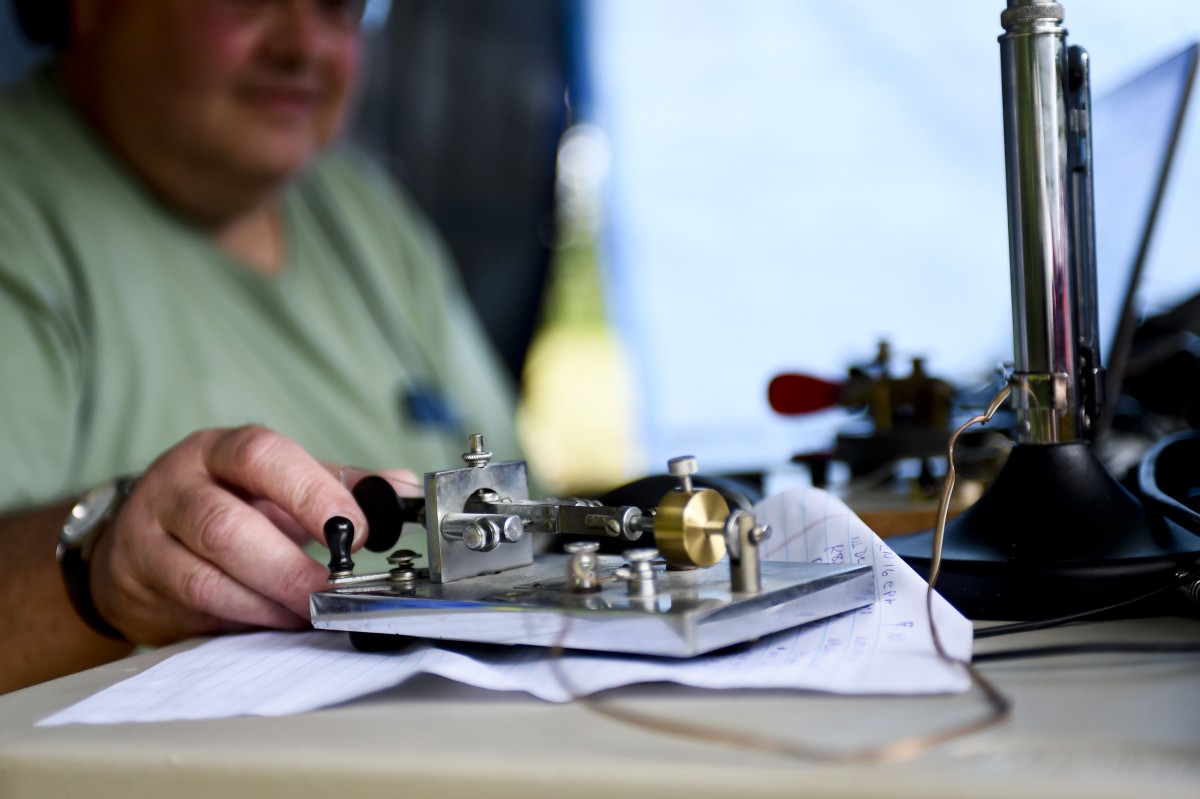MORGANTOWN — The white noise crackling across all those handsets at the top of the world June 24 carried the potential of human communication, and Dean Thompson was dialed in quite nicely in that radio-regard.
Thompson is an amateur radio enthusiast, which slots him in the broadcast ranks with people who can tap Morse code in casual conversation while bouncing radio hellos off the moon and Northern Lights at the same time.
He’s a ham (yes, they still call them that), and proud of it.
Thompson — you may know him by his call letters of KD8YNY — and a handful of hams just spent the weekend encamped 2,700 feet above sea level, in the hills past Coopers Rock State forest.
While amateur radio is an engaging hobby, there was a frequency of seriousness attached to this particular outing for the members of Monongalia Wireless Association.
It was Field Day 2018, an annual emergency preparedness exercise sponsored by the American Radio Relay League and its 170,000 ham operators nationwide.
A big objective this year was what wireless association members do here all the time, especially during emergency situations, such as snow storms or county-wide searches for missing persons.
That is, the goal was to establish on-the-fly networks in conditions that are less than optimal.
As fellow member Bob Steele (call letters N8HGL) said, you don’t always have cell service — and what happens when the Internet crashes?
Growing up in Virginia, Steele got into ham radio early on. He liked the gadgets and the glow of the vacuum tubes.
During his military days, he was on the frontlines of the Cuban Missile Crisis, at Guantanamo Bay, and saw for himself the versatility and reach of amateur radio.
“Castro had shut down all communications,” he said. “The ham guys went and set up relays so the Marines could call home. All you need is a radio, a 12-volt battery and an antenna.”
Or crutches, Thompson said, chuckling. He once saw an operator fashion a working antenna using the aluminum tubing from a pair.
When computer crashes and power failures knocked MECCA 911 off the air in 1993, association members were the communications crutch for Monongalia County’s emergency dispatch center.
It took about 20 minutes for operators to set up a working network.
All of MECCA’s calls were routed through ham radio sets to keep the cruisers dispatched and the ambulances and fire trucks going.
If there’s a heavy snow fall, Thompson said, you can bet a ham radio operator, or operators, will be keying the microphone on the western end of Monongalia County.
“Really, it’s fun, but it’s also a public service,” Thompson said.
You can still hear his British accent, even though he’s been in the U.S. for a while. He left London for Morgantown after he married an American girl who wanted to come back home.
Amateur radio makes him a citizen of the world.
“I made contact with Argentina the other night,” he said. “That was something.”




